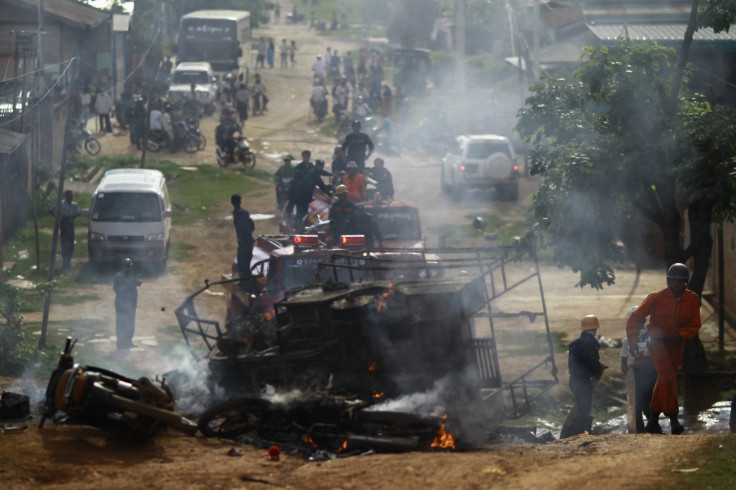Obama's Second Visit To Myanmar Sooner Than Expected Amid Violence

U.S President Barack Obama is returning this month to Myanmar, where he made history in 2012 as the first American chief executive to visit the Southeast Asian country. Obama’s next trip will be different from his last, as almost 100,000 persecuted minority Muslims have fled the nation in the past two years.
A recent uptick in violence in Myanmar against Rohingya Muslims has led to the exodus of at least 8,000 members of the minority group in the past two weeks. This figure is nearly double the number from the comparable period last year, according to media reports. Myanmar, aka Burma, has regressed, and Obama is making the trip now only because it’s the location of two Asian regional summits, which the president promised to attend, the New York Times reported. Still, he appears poised to maintain engagement with the conflicted country as one of the diplomatic achievements of his presidency.
Ahead of his trip, Obama called Myanmar President Thein Sein Thursday to press him on the pace of constitutional reforms and on the treatment of Muslims, the Times reported. “We understand this is hard to address,” Benjamin J. Rhodes, the deputy national security adviser, said in summarizing the president’s message to Myanmar, “but if you do not take steps toward alleviating the humanitarian situation, that is going to have a profound effect on Burma’s standing and the perceptions of its progress.”
In a separate phone call, Obama spoke with opposition leader Aung San Suu Kyi about “the need to ensure an inclusive and credible process for conducting the 2015 elections.” Suu Kyi, whose husband and two children are British, is constitutionally barred from running for president in the 2015 election because of a provision in the Burmese constitution that restricts people with spouses or children who hold foreign citizenship from holding office.
Thein Sein and the Burmese military chief held unprecedented talks with Suu Kyi just days after the government announced the country’s general elections would be held in either late October or early November of next year. The government is considering amending the constitution before the elections, the New York Times reported.
Myanmar had engineered a remarkable transition from a 50-year-long military dictatorship into a semidemocracy at the time of Obama’s first visit. The reforms had prompted some Western nations, as well as Japan and South Korea, to drop a number of sanctions against Burma, a country rich in gems, oil and natural gas. Under normal circumstances, Obama would not have likely visited the country again until after the elections scheduled for 2015 as an obvious benchmark to judge Myanmar’s progress, the Times said.
“There are so many elements that are going wrong,” said John Sifton, the Asia advocacy director at Human Rights Watch. “Once the Burmese sanctions were lifted, the reforms started to stall.” Sifton told the New York Times that, as a result, the U.S. no longer has much leverage over Myanmar.
Obama is also planning to meet with Suu Kyi in Myanmar’s historic capital of Yangon, after attending the East Asia Security Summit in the newly built capital of Naypyidaw. While in Yangon, Obama will hold a town-hall-style meeting with Burmese youth about the need to accelerate political reform and to stop violence against the Rohingya, the New York Times reported.
After becoming an independent nation in 1948, Myanmar came under a military coup in 1962, which engulfed the country in rampant ethnic strife. The Burmese government has long claimed that almost 1.3 million Rohingya Muslims, who reside primarily in the northern tip of Rakhine state, are illegal immigrants from Bangladesh. In recent years, this has resulted in frequent and violent clashes between the majority Buddhists and the minority Rohingyas in Rakhine, killing scores of people on both sides and displacing thousands from their homes.
The United Nations has reported consistent and systematic human-rights violations in the country. As of 2013, Burma had a low level of human development, ranking 150 out of 187 countries, according to the Human Development Index (PDF).
© Copyright IBTimes 2025. All rights reserved.





















